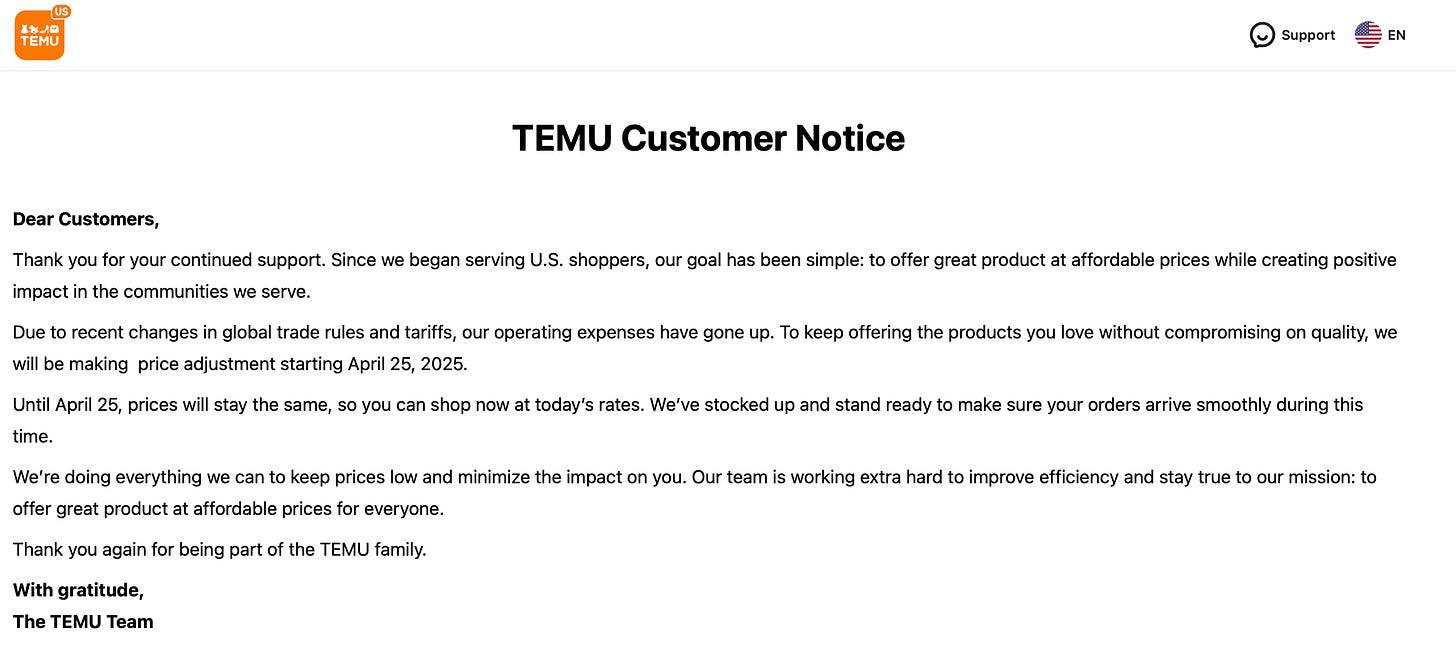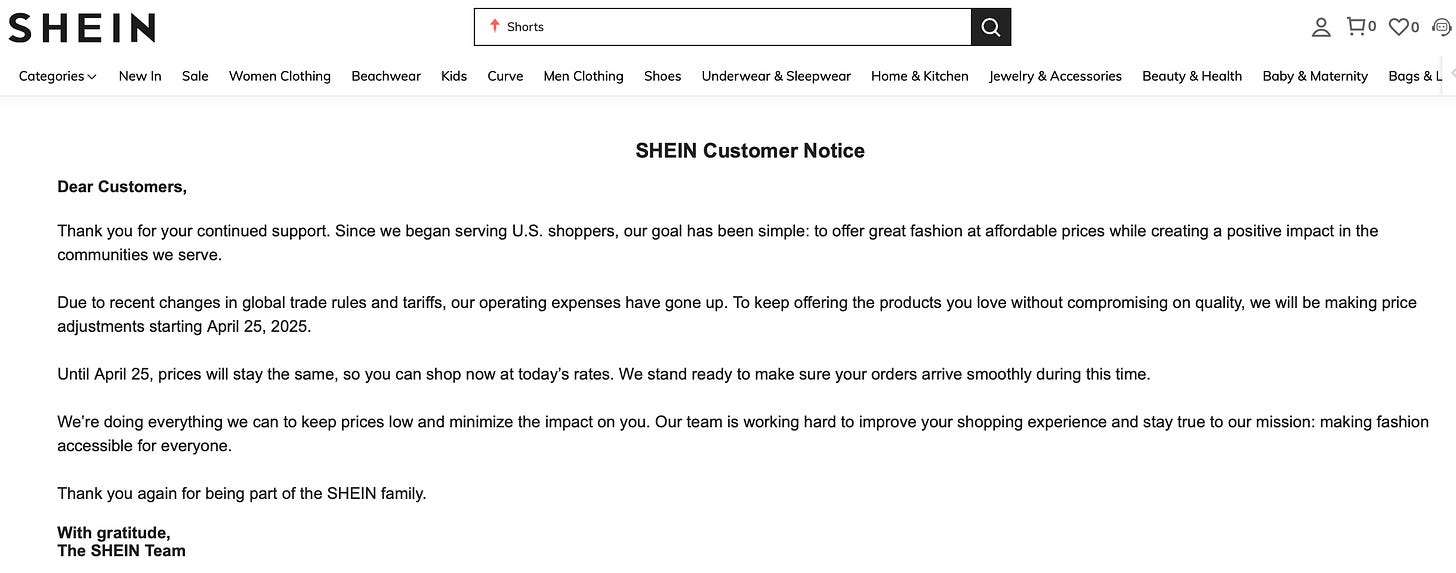The United States needs to “stop whining” about being a victim after “taking a free ride on the globalization train,” China's official state media recently stated.
That’s the current vibe check as we brace for tariff escalation. The new U.S. tariffs on Chinese imports—and the end of the de minimis exemption that once allowed shipments under $800 to enter duty-free—have sent Chinese platforms scrambling. E-commerce giants like Temu and Shein are pulling back, and the ripple effects are already hitting digital ad markets and consumer behavior.
Temu spent heavily on U.S. digital advertising after its 2022 launch—but that phase is likely over. According to Adweek, its share of Google Shopping impressions dropped to 0% last week. The company, which previously claimed 1 in 5 Google Shopping ads, slashed its daily average ad spend by 31% from March 31 to April 13. Shein reduced its spending by 19% in the same period.
Whether this is a temporary recalibration or the start of a longer retreat is TBD. But with their most important overseas market now facing steep friction, Temu and Shein are under pressure to pivot and stop its spending sprees.
The impact goes beyond Temu and Shein, touching every major retailer built on low-cost Chinese manufacturing and a value-for-quality model—Amazon, Walmart, and Target included.
Shein and Temu have long relied on low prices, viral marketing, and little to nonexistent communications to just focus on GMV growth. But that playbook isn’t built for moments like this.
In response to the tariff changes, both companies issued almost identical statements announcing price hikes.


As of now, these announcements are the only official public-facing updates. There hasn’t been a broader press outreach, consumer education campaign, or direct pushback to the narrative forming around them. Perhaps more is to come—but in this moment of reputational risk, the absence of deeper engagement (and identical statement!!) is notable.
Reposition Around Value—Not Just Price
Shein and Temu can no longer compete on ultra-low prices alone. What they can compete on—what they must compete on—is operational efficiency, speed, and differentiation from its competitors.
Here’s something they could include in their messaging playbook:
We control our supply chains. That’s how we stay nimble, cut waste, and keep prices competitive—even with tariffs.
We are deeply integrated with Chinese manufacturing. That’s why we can scale trends faster and smarter than anyone else.
We iterate faster than anyone. That speed means less unsold inventory and better alignment with what consumers actually want. We do this better than our competitors.
Tariffs raise costs. But efficiency, focus, and smart logistics can still deliver value—and that’s the positioning that can win.
Don’t Let Billions in Customer Acquisition Go to Waste
Billions have already been poured into acquiring American customers. Now is not the time to pull back or let lesser-known platforms swoop in to fill the vacuum. DHGate is already surging in the App Store rankings, buoyed by the TikTok-fueled wave of "factory direct" content.
Because American consumers are not sitting idle ahead of higher expected prices. They’re actively looking for alternatives. Factory tours, warehouse hauls, sourcing agents—all framed as ways to bypass traditional retail markups—are flooding social feeds. If Shein and Temu go quiet now, they risk being sidelined by nimble upstarts with looser governance and nothing to lose.
The Bottom Line
Nothing unites Americans more than the fear of losing access to whatever we want, whenever we want it. This moment isn’t just about finding a bargain—it’s about maintaining what feels like a birthright: cheap, endless choice, delivered on demand.
Shein and Temu don’t need to be perfect. But they need to be present. They need to move past the vague, formulaic statements and start telling a real story. A story about resilience, adaptation, and why they’re still the best value in the market—even when the market changes.
Because if they don’t tell that story, someone else will. And it likely won’t be in their favor.



"Reposition Around Value—Not Just Price!" 💯 Exactly right.
Shein can do so much more with its supply chain model than just sell cheap fast fashion. And both companies now have millions of MAUs which they can easily reach without paying anyone. There are far worse strategic positions to be in...
Simple , focus on NON-US markets, world is plenty big without the US.